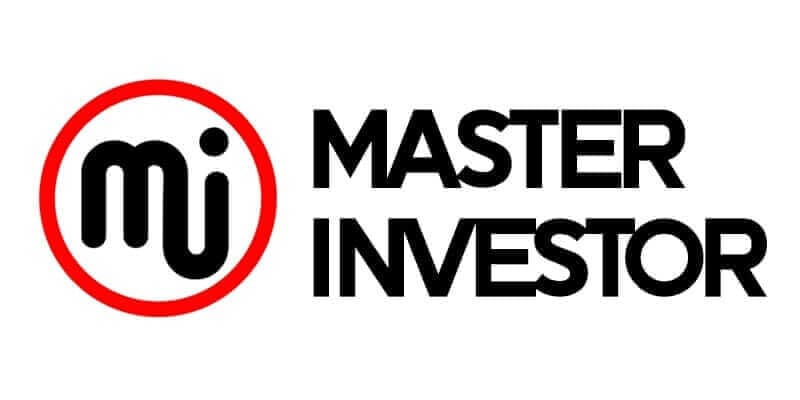
Summary:
We will gain knowledge about margin trading, including its definition, operation, and significance of prudent money leverage, as it relates to bank loans used by real estate investors. This information will assist us in determining whether opening a margin account fits into our overall investing plan.
The article discusses the benefits and possible drawbacks of trading using borrowed funds. We will find that margin can increase both our gains and losses, highlighting the importance of prudent risk management and financial literacy.
We can learn effective tactics by studying how well-known investors like Warren Buffett use Other People's Money (OPM) to increase investment returns. These illustrations highlight how crucial discipline, financial education, and wise investing methods are to minimizing financial catastrophes.
Today, we’re diving deep into what exactly margin is in day trading, its risks, and whether we should trade with a margin account.
While banks typically won't lend us money to trade stocks, that doesn’t mean we are out of options for borrowing to invest in the stock market. With enough experience and knowledge, we might find friends and family willing to lend us money to enhance their financial standing and ours.
If we are like many people who’d rather not handle Grandma’s retirement funds, there are other ways. Like in real estate, the stock market offers plenty of opportunities to use other people’s money (OPM). As an investor, we can utilize a margin account.
Buying stock on margin lets us leverage our capital much like a real estate investor uses a bank loan. Embracing master Investor’s mindset means using debt wisely after we are financial educated, not before. Leveraging money with "good debt" is a practice to respect, not fear—unlike the kind of debt that chains people to a job. There is nothing wrong with having liabilities (things that only takes money out of our lives) in our lives as long as we have good debt/assets that will pay for the liabilities’ expenses.
We can leverage our money by purchasing stocks on margin in a similar way to how a real estate investor uses a bank loan. Adopting Master Investor’s mindset entails managing good and bad debt sensibly following our financial education, not prior to it. Unlike debt that ties us to a work, leverage money with "good debt" is a habit that we appreciate rather than dread.
What precisely is a margin account, then?
We can buy more stocks with this method of borrowing money from our broker than we could if we were buying them all with your own money. This has the potential to greatly enhance both our gains and losses. Never forget that using debt for leverage calls for respect and cautious consideration.
We must have a margin account with our broker in order to trade on margin, and we will need to supply collateral, which is typically stocks that we already own. When making a long-term investment, make sure our earnings will offset the interest costs us incur from brokers.
We can borrow up to 50% of the stock purchase amount after our account is established. What makes margin necessary? Leverage is the same reason debt is used by real estate investors. It magnifies gains when the equities increase, significantly raising our potential profits—or, conversely, amplifying our losses in the event that things go south.
Although the riskiest, leverage is a very effective tool for wealth accumulation. Debt is sometimes compared to a loaded gun: if handled carelessly, it may cause a lot of damage, but if utilized properly and cautiously, it can be a useful tool.
Debt can make us very wealthy or can make someone very poor.
Using a margin account to invest in Tesla in 2024
Let's now assume that we have a little cash account with $5,000.
Normally, we could only afford 19 shares of Tesla at the current price of $262.83 (July 2024). If we sell things for more, we will make a lot more money. However, we could leverage up to $20,000 with margin. Using just our initial $5,000, we may purchase twice as many Tesla shares, and if they increase by even a small amount, our return will increase significantly.
The main benefit of trading on a margin account is that, when leveraged appropriately, margin accounts allow us to increase both our potential gains and losses, which we'll discuss in a moment. The trade settlement durations provide an additional benefit.
A margin account enables you to reuse funds instantly, which is essential if we want to day trade full-time, as opposed to a cash account where we would have to wait two days to reinvest.
The skill of leveraging "Other People's Money" (OPM) to increase investment returns has been perfected by a number of well-known investors. Here are some noteworthy instances:
Ray Dalio: Bridgewater Associates, one of the biggest and most prosperous hedge funds in the world, was founded by Ray Dalio. An estimated $15 billion is his net worth. In order to increase returns while controlling risk, Dalio's "Pure Alpha" strategy leverages positions across a variety of asset classes using OPM (Other People's Money).
Carl Icahn: With an estimated net worth of over $15 billion, Carl Icahn is a prominent activist investor. By using OPM to buy sizable shares in businesses, he may influence changes that he thinks would increase stock value and unleash shareholder value.
Bill Ackman: Pershing Square Capital Management, a hedge fund renowned for its activist investment techniques, was founded by Bill Ackman. It is believed that Ackman has a net worth of approximately $3 billion. He argues for reforms to unlock value after using OPM to take sizable leveraged investments in undervalued or poorly run businesses.
These investors have demonstrated the potential power and risk of using borrowed funds in investments by utilizing OPM in a variety of methods to increase their returns. Even with all of these advantages, day trading on a margin account is not for the timid. To make your own decision, it's critical to comprehend the true nature of margin trading and its benefits and drawbacks. Above all, stay away until you've taken risk management seriously.
Compared to cash accounts, margin accounts are riskier, and poor management could put our initial investment at risk as well as result in us owing our broker money.
Is it prudent to trade stocks with a margin account in 2024?
Professional traders find that margin accounts, when handled properly, are quite helpful in maximizing earnings on both the long and short sides. However, if we utilize it improperly, a margin call might cause us to lose all of our money.
In summary, our trading success or failure will not be influenced by the sort of account we have, be it cash or margin.
Many misconceptions exist regarding margin. Some claim that it's "bad" since it involves gambling or that it will cause you to "blow up" our account, which means you lose everything. However, let us reassure you that margin alone does not cause traders to fail or blow up; rather, it is the trader's own lack of discipline, lack of risk management, or reliance on dubious recommendations that causes the harm.
Both margin and cash accounts can be readily blown up by an inexperienced trader who lacks financial knowledge and prudence (i.e. blowups aren't confined to margin trading). Because an uninformed trader may follow unreliable suggestions, pursue market trends, or make rash decisions if they lack a firm grasp of market dynamics and risk management.
Whether they use their own money in a cash account or borrowed money in a margin account, this careless behavior can result in large financial losses.
Consider it this way: it's like playing with fire to use a margin account without knowing the hazards. We could get burned. Margin calls, which require more money to offset losses, might appear out of nowhere.
The broker may liquidate our holdings at a loss, wiping out our equity and placing us in debt if we are unable to meet this demand.
In a cash account, the same bad choices might gradually deplete our capital and eventually result in significant losses.
Whether trading with margin or cash, education, self-control, and prudent risk management are essential for success. Leverage is a powerful tool, but without the right knowledge and respect, it can become a dangerous weapon. Gain the financial knowledge required to properly navigate the markets before delving into the intricacies of stock trading.
Keep in mind that what matters is how much money we keep and how we make it that money, not how much we make. We must strictly focus on the assets column instead of the income of our financial statements. Acquire sound assets over and over again.
Additionally, we must be astute, knowledgeable, and strategic if we want to maintain our money multiplying through sound investing and wealth protection. The team of professionals in our lives is a critical point. We must have the right mentors and team in order to succeed in business.
We can start small to gain confidence and grow from there but we must take action.
Here at MASTERINVESTOR, We Can Help You Take the Next Step
Are we prepared to use Other People's Money (OPM) to our advantage and begin trading stocks?
We have the finest education to teach all of our partners. Don't let the intricacies of stock trading prevent us from succeeding. Give oursleves the information and abilities we need to confidently traverse the market.
Start investing in high quality financial education, by reading our financial eBooks:



Lucrative resources and tools:
Follow us on Instagram.
Listen to our Podcast.
Subscribe to our Newsletter.
Follow us on Tiktok.
Purchase a business digital Course.
Like our Facebook Page.
Join our Inner Circle.
I am reading: How to Invest in Stocks from Anywhere?
Comment, like, share and follow for more High Quality Financial Education Made Simple.

